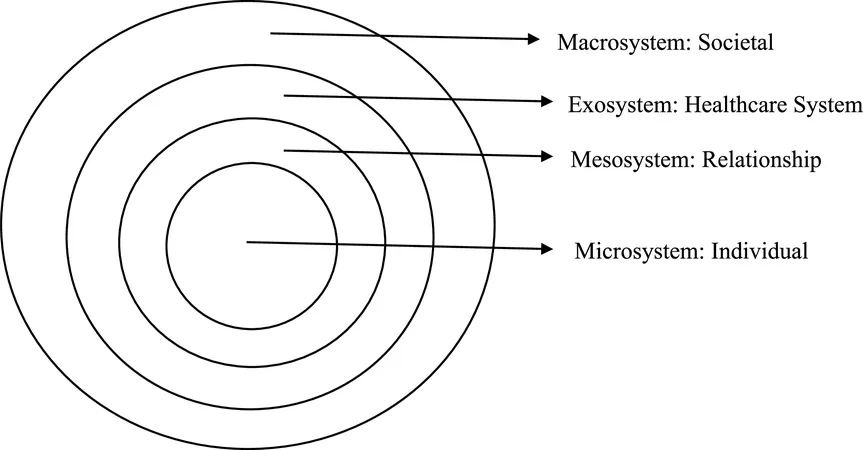
Emergency Caesarean Sections: Unveiling Women’s Experiences and Support Needs in Uganda
2025-07-19
Author: Wei
Introduction to Emergency Caesarean Sections
Emergency caesarean sections (EmCS) are urgent surgical procedures performed without prior planning, often due to critical conditions affecting the mother or baby. As of 2021, global caesarean section rates have surged to 21.1%, a significant increase since the 7% recorded in 1990, with projections forecasting a rise to 28.5% by 2030.
While Uganda's overall rates stand at a mere 6%, Kawempe National Referral Hospital (KNRH) in Kampala reports a staggering 43% caesarean rate, indicative of the hospital's status as a critical facility for high-risk pregnancies.
Unique Challenges of Caesarean Birth
Unlike other surgical procedures, EmCS combines the complexities of surgery and childbirth, triggering diverse emotional, psychological, and physical responses in women. The World Health Organization (WHO) asserts that caesarean rates exceeding 15% offer no additional benefits for mothers or newborns. But while some women view EmCS as a lifesaver, others experience it as a traumatic event.
The Need for Comprehensive Support
Research from Tanzania highlighted a preference among women for vaginal births, yet the need for a healthy baby often overshadows concerns about surgical risks. Similarly, Somali women residing in Sweden have expressed anxiety about complications affecting future pregnancies and physical repercussions post-surgery.
Lack of Data in Uganda
Unfortunately, there is a scarcity of data in Uganda exploring women's experiences and support needs following EmCS. To address this gap, a recent descriptive phenomenological study at KNRH sought to uncover these experiences and help facilitate positive birthing outcomes, even with EmCS.
Study Design and Methodology
Conducted between June and July 2023, this study utilized a descriptive phenomenological approach grounded in the Socio-Ecological Model (SEM), which considers the interconnectedness of individuals and their environments. The research involved in-depth interviews with women who underwent EmCS, focusing on their unique narratives and needs for support.
Key Findings: Positive Experiences
Despite the challenges, many participants shared positive experiences predominantly centered around safety and the successful outcomes of their surgeries. One mother reflected, "I was just thinking about saving my baby's life," indicating a sense of shared joy at the birth despite the trauma of surgery.
Family Support: A Critical Component
Support from family members emerged as a significant factor in enhancing women's recovery. Many expressed gratitude for the presence of loved ones, which fostered a supportive environment during their post-operative phase.
Negative Experiences and Concerns
Conversely, fear of death and anxiety about surgical complications loomed large among many women. Some reported feeling overwhelmed by uncertainty, having experienced previous losses related to childbirth. This fear was compounded by feelings of guilt over their caesarean births, as many women initially aspired for vaginal deliveries.
Barriers to Quality Care
The study also uncovered systematic barriers, like delays in receiving care, poor communication from healthcare providers, and informal charges imposed despite the public status of KNRH. Many women felt abandoned, particularly during critical post-operative moments without supportive family members.
Support Needs Identified
The support requirements for women post-EmCS spanned financial resources, emotional support, pain management, and adequate information regarding their procedures. Participants highlighted that effective communication from healthcare staff could enhance their overall experience.
Conclusion and Call for Action
This study spotlights the multifaceted experiences of women following EmCS in Uganda, revealing a blend of positive and negative feelings. It stresses the need for improved support systems that incorporate family involvement, better communication, and comprehensive pain management practices. Such measures could significantly enhance women's experiences and outcomes after EmCS, ensuring that they feel cared for and empowered throughout their childbirth journey.



 Brasil (PT)
Brasil (PT)
 Canada (EN)
Canada (EN)
 Chile (ES)
Chile (ES)
 Česko (CS)
Česko (CS)
 대한민국 (KO)
대한민국 (KO)
 España (ES)
España (ES)
 France (FR)
France (FR)
 Hong Kong (EN)
Hong Kong (EN)
 Italia (IT)
Italia (IT)
 日本 (JA)
日本 (JA)
 Magyarország (HU)
Magyarország (HU)
 Norge (NO)
Norge (NO)
 Polska (PL)
Polska (PL)
 Schweiz (DE)
Schweiz (DE)
 Singapore (EN)
Singapore (EN)
 Sverige (SV)
Sverige (SV)
 Suomi (FI)
Suomi (FI)
 Türkiye (TR)
Türkiye (TR)
 الإمارات العربية المتحدة (AR)
الإمارات العربية المتحدة (AR)